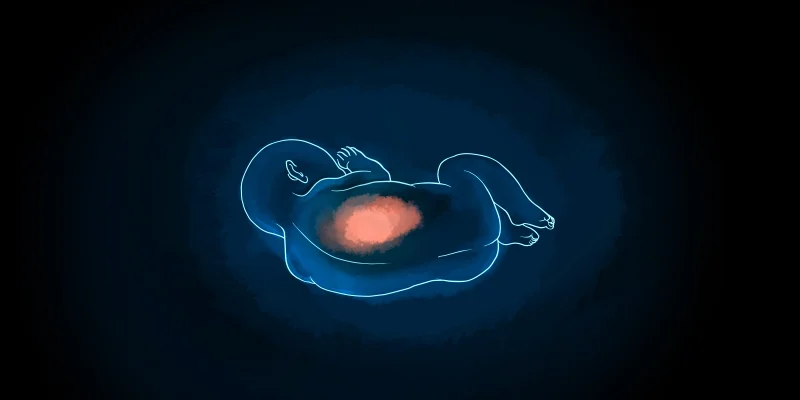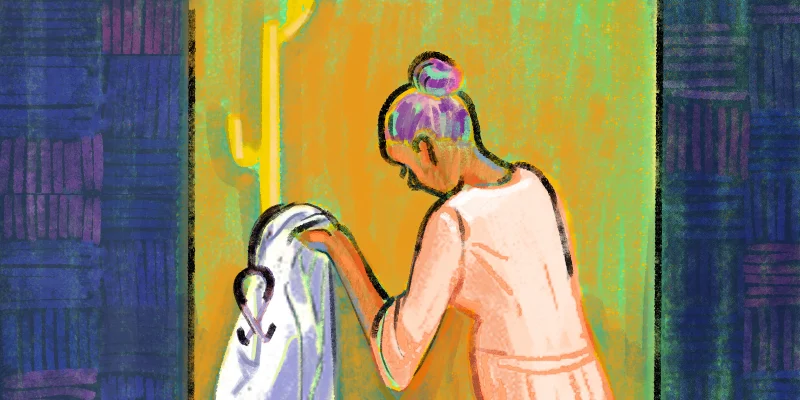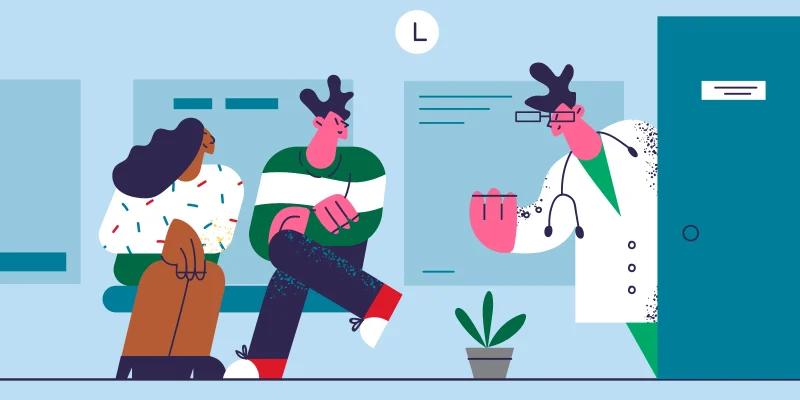
Her face was not one meant for poker. Her pursed lips emitted “pfffs” and “hmmphs” and her eyes rolled as I spoke. Her hips shifted and squirmed in the vinyl chair while her son stacked otoscope tips in towers on the linoleum below.
The emergency department can inure one to such displays of frustration. My patients’ parents were generally worried, stressed, exhausted — and understandably so. Much of my job was to anticipate and assuage their fears and worries.
I gave this mother my usual counsel about her son’s week of having a stuffy nose and cough, explaining why I thought it was caused by seasonal allergies, how his normal oxygen levels and lung exam eliminated more serious culprits, and what she could do at home to give him some relief.
Her expression did not soften. Her arms stayed crossed. Her foot maintained its nervous tap.
I was tempted to leave the room, attributing her attitude to something out of my purview, then commiserate with the nurses about the “rude mother in room 10” (since they had already warned me she was coming from triage), and move on.
Instead, I opted to speak what I felt.
“I get the sense something is bothering you. Can we talk about it?”
Like a startled deer, her eyes darted up to meet mine.
“Yes,” she said resolutely, “I get what you’re saying about the allergies, but I am very angry I had to wait so long to see you. There were a dozen other kids who came in after us that got taken to a room first. And then we sat in here for another half an hour.”
It was a hectic night, and I remembered thanking her for waiting when I came in, which seemingly did little.
Did she know how a triage system worked? Did she realize the emergency department was not first come, first served?
Didn’t this mother learn from her other ED visits? Perhaps she’d never come when it was busy. Perhaps she’d never waited that long. But perhaps we had never explained to her how the system works.
So I laid it all out: how the nurses assess each patient as they arrive and use vital signs, red-flag symptoms, and their experience seeing lots of sick kids to assign each patient a triage level. That level guides how urgently doctors should see each patient.
“Honestly,” I added, “you probably don’t want to be the one seen right away — that means your child is very sick.”
Finally, her brow unfurrowed and shoulders relaxed.
“I didn’t know that,” she replied, “I just saw all these other kids being taken back before my son. I felt like we were being forgotten — or maybe even discriminated against. I guess those other kids needed help faster than my son though.”
She thanked me and left content with antihistamines, grateful her that child didn’t need more complex treatment.
Throughout our medical training, we are warned against making assumptions — to never presume a patient’s experience of a symptom or their understanding of a test result. Regarding illness and injury, we are taught to ask and explain. But rarely do we provide the same patience and clarity regarding the logistics of the healthcare system. Often, we complain amongst ourselves instead.
Why did that patient come to the ED for symptoms they’ve had for 6 months — they should know this is not the place for that!
Ugh, the patient drank water when they were told to be NPO. I know they heard me. Now the OR schedule will be off!
The patient showed up without a referral. Now they’re mad at us for not seeing them today.
That patient was mad their surgery got bumped — don’t they understand I’m the only one on call and two traumas came in this morning?
It wasn’t until my third year of medical school that I understood much of what happened to me throughout the bewildering cancer treatment I had years before. Medical school taught me why I had to be NPO or get prior authorization for certain tests or medications.
As physicians, we spend years acclimatizing to the culture of healthcare — learning its rules and language, navigating its systems and procedures. Too often, we forget that what is routine for us is rarely routine for patients. They are tourists in our native land and we should not assume they know our ways. It is up to us to offer our hospitality and teach our customs. We can make logistics and routines explicit for patients. We can explain before we complain.
Dr. Julia Michie Bruckner is a pediatrician, mother, survivor of recurrent cancer, writer and 2018–2019 Doximity Author. You can find her at www.juliamd.com and @JuliaMDWriter.







